Wayne Rooney at 40: Alex Ferguson rows, Man Utd U-turns and brutally honest Coleen admission
View 6 Images
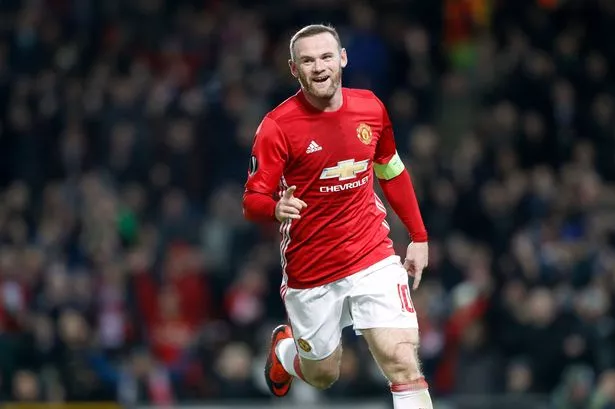
Wayne Rooney turns 40 today meaning it is more than 23 years since a fresh faced 16-year-old marked his arrival by scoring a last minute winner for Everton to down then champions Arsenal on an October afternoon in 2002.
Little did we know that it would herald the beginning of a career for a player that would go on to break teenage transfer fees, light up an international tournament and surpass Manchester United , England and Everton goalscoring records.
Clive Tyldesley, the commentator at Goodison Park that day remarked: "Remember the name... Wayne Rooney !"
As introductions go it was an emphatic one and, unlike so many teenage players before and after him, this wasn't a case of lighting the touch paper only to underwhelm in later years. Rooney would deliver, deliver and deliver across the next two decades.
Everton were always going to struggle to keep up with Rooney's ambitions and, even though he inspired them to a seventh place finish that year, bigger and better things were not far away. His England debut came at Upton Park in a loss to Australia on February 12 2003 at 17 years and 111 days - making him the youngest ever Three Lions player.
The Toffees can boast about having the best young player at a major tournament, something they may never do again. Euro 2004 was the stage on which Rooney truly got Europe and the world's attention as he starred for England en route to the last eight. The teenager tore the French defence apart, scored against Switzerland and Croatia before injury ended a tournament of what might have beens.
It was a few weeks though which would ultimately make Sir Alex Ferguson decide to push the go button and, after a transfer battle with Newcastle , Rooney would move to Old Trafford for £27million. It made him the world's most expensive teenager at the time.
View 6 Images
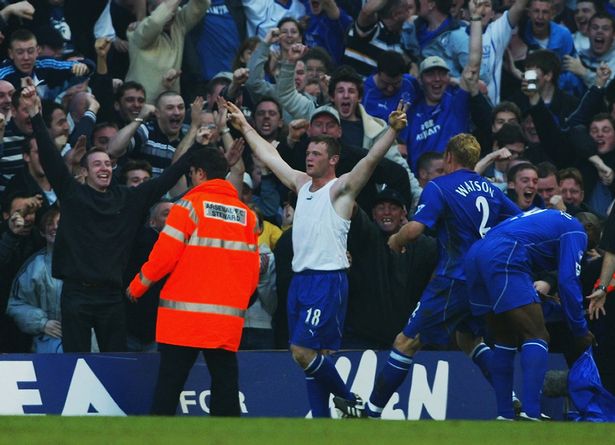
Ferguson had claimed that he'd landed a player who he felt would make any United team, even the one that had won the treble in 1999. Injury meant United fans had to wait to see their latest superstar in action, but he didn't disappoint and patience truly was a virtue.
Rooney's debut in Manchester would come in the Champions League . He needed just 17 minutes to score his first goal, which was one of three as he notched a hat-trick to down Fenerbahce and truly announce himself to his new supporters.
Playing at Old Trafford served as the springboard to take Rooney to some stellar individual honours. The Englishman was named the PFA Young Player of the Year in successive years in 2005 and 2006. Only three players this century have achieved the feat.
But whilst the brilliance was often on show it wasn't being backed up by trophies. Rooney began his third year in Manchester and the best he had to show for it was a runners-up medal from the FA Cup final in 2005. Chelsea , who were keen on signing Rooney back in the day, had become England's dominant force.
View 6 Images
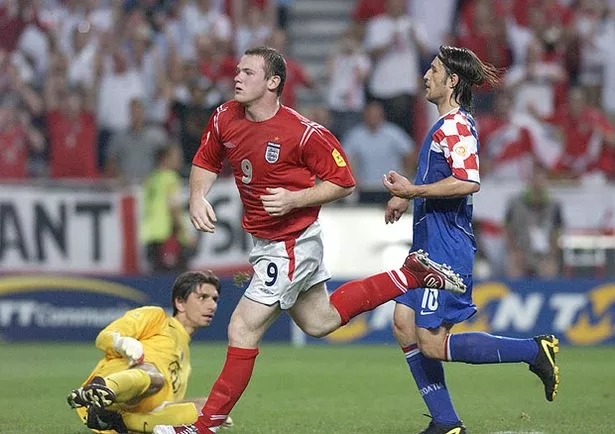
That was all about to change as the 2006/07 season began, but whilst it soon led to the second Holy Trinity in United's famed history, it would begin an era that would see Rooney play second fiddle as Cristiano Ronaldo morphed into one of the world's greatest players.
It came after a World Cup in 2006 when Rooney and Ronaldo clashed on the pitch in a quarter-final where Portugal again came out on top. Rooney was sent-off, many claiming his United team-mate played a central role in that dismissal. A wink to the camera did little to help the situation. But it was another case of Rooney's hot-headed temper getting the better of him.
He and Ronaldo didn't seem to have an issue on the pitch though and three years after Rooney moved to Manchester he claimed a first Premier League title during a year in which he dovetailed with Ronaldo brilliantly. The duo teamed up to score one of the great counter-attacking goals in top flight history during a 4-1 win over Bolton.
Content cannot be displayed without consent
That campaign also marked the first time that Rooney had exceeded the 20-goal mark. The success was the beginning of a three-year spell that saw Ferguson pick up a hat-trick of titles for the second time. That phase also included back-to-back Champions League finals - winning in 2008 in Moscow before losing to Barcelona the following year.
Rooney was one third of a frontline that also included Ronaldo and Carlos Tevez. It was a hark back to the days of George Best, Sir Bobby Charlton and Dennis Law. Few teams in Europe, let alone England, could compete with their brilliance.
The Champions League final loss in 2009 marked the end of an era. Ronaldo would leave for Real Madrid in a world-record move, but that would be Rooney's sliding doors moment. Ever since he'd arrived at the club he'd never been the out and out main man.
When he rocked up, Ruud van Nistelrooy was still central to the attack and after his exit Ronaldo quickly emerged. Come the 2009/10 season though Rooney was the main man, no question. It was a responsibility that saw him thrive - backed up by the numbers.
He would score 34 times in all competitions - a career high - en route to his only PFA Player of the Year award. United, now without Ronaldo and Tevez, would miss out on the title but Rooney's stock had never been higher.
53 – Goals for England, a national team record until surpassed by Harry Kane (76).
120 – England caps, a record for an outfield player, five short of Peter Shilton’s overall record.
253 – Club-record goal tally for Manchester United.
208 – Goals scored in the Premier League. Only Alan Shearer (260) and Kane (213) have scored more.
16 – Rooney was 16 years and 360 days old when he scored his first Premier League goal, for Everton against Arsenal in October 2002, making him then the youngest goalscorer in the competition’s history.
12 – Major honours won with Manchester United – five Premier League titles, three League Cups, an FA Cup, a Champions League, a Europa League and a FIFA Club World Cup.
4 – Professional clubs represented – Everton, Manchester United, DC United and Derby.
366 – career goals for club and country, in 883 games.
25.3 – Rooney’s win percentage as a manager, with Derby, DC United, Birmingham and Plymouth.
It all meant that excitement among England fans was peaking ahead of the World Cup in 2010. Fabio Capello had the team purring and they were among the favourites to win the tournament. An underwhelming 1-1 draw with America was followed by a goalless draw with Algeria, where England looked poor. Fans made their feelings known and the camera panned to Rooney at full-time as he let loose.
"Nice to see your own fans booing you, you football 'supporters'," he remarked. The heat was on him. A win over Slovenia meant England made it into the last 16, but there they were hammered by Germany to end a tournament that will not be looked upon positively in history.
Despite the international disappointment, at club level Rooney was the talisman and perhaps that is why he felt he had the stature to go in and ask Ferguson what his plans was in the transfer market. It was a conversation that would get heated, leading to an argument with the Scot as his authority was questioned. Rooney would then hand in a transfer request as he called the club's ambition into question. Years later he stands by his approach . "I still think I had a right to ask the question," he said recently.
Rooney would later reconcile with Ferguson, agreeing a new deal that would see him stay at United for his peak years. The Premier League success of 2013 would be his last before David Moyes , his manager at Everton, was appointed to replace Ferguson as the Manchester managerial merry-go-round began.
View 6 Images
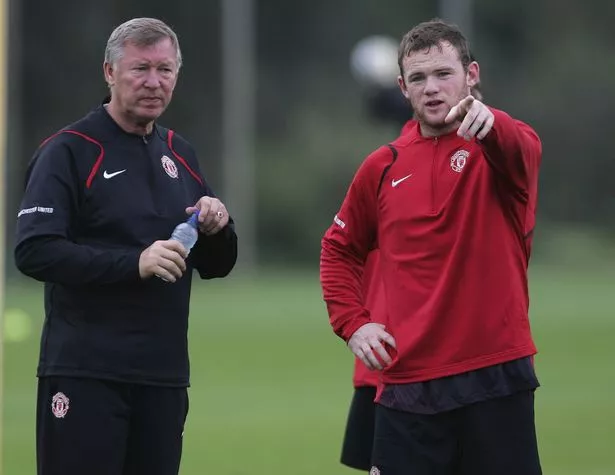
Rooney played under three managers in his final four years in Manchester, which saw him claim a further three major trophies. The landmark moment of his career came in January 2017. He scored at Stoke to surpass Sir Charlton’s all-time goalscoring record, stepping up four minutes into stoppage time to score his 250th goal for the club with a stunning free-kick.
It was the second major record Rooney had to his name. In 2015 he became England's all-time leading goalscorer after scoring his 50th international goal in a 2-0 win over Switzerland at Wembley. He would end his Three Lions career with 53 international goals.
Content cannot be displayed without consent
But the man who looked destined to conquer the world at Euro 2004 never delivered on that promise. England would lose in the quarter-finals of Euro 2012, fail to make it out of the group at the World Cup in 2014 and endured the embarrassment of a last 16 loss to Iceland at Euro 2016 - Rooney's final major tournament.
The striker left Manchester in the summer of 2017 with a total of 253 goals to his name, returning to Everton for a year. It was a feel good homecoming, but ultimately a short-lived once as he headed to the MLS with DC United before heading to Championship side Derby, which began his route into management.
Rooney has now had four managerial gigs and, it is fair to say the jury is still out. If anything its veering against him. Plenty of England's recent 'Golden Generation' have turned their hand at management with mixed results.
Rooney, Frank Lampard and Steven Gerrard are among those to swap the pitch for the dugout following retirement. But the United legend has a CV that's seen him preside over Derby's relegation, albeit one influenced by huge points deductions and a lack of funds.
A return to DC United provided a chance to make a name for himself away from the English spotlight, but he won just 14 of 53 games before mutually leaving the MLS outfit. Just four days after that exit and Birmingham City, newly taken over by an American consortium, trusted Rooney to lead their drive up the football pyramid.
View 6 Images
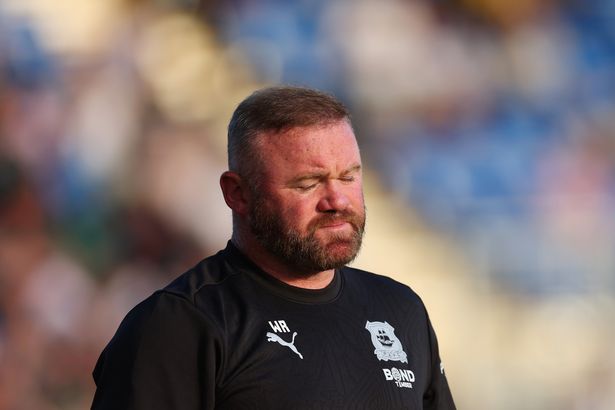
Instead quite the opposite occurred. Rooney's two wins from 15 games pushed Birmingham into a relegation battle, one they couldn't overcome. The Championship drop zone has become an unwanted home for Rooney. After Derby and Birmingham he took over at Plymouth.
The Pilgrims would follow a familiar pattern and, even though they sacked Rooney midway through the season, he'd left the new manager with plenty to do and they now find themselves in League One.
Wife Coleen, who Rooney has been with since school, wasn't sold on Rooney taking over at Plymouth. Rumours claim she also struggled when her husband had his managerial stint in America.
Despite a number of off-field scandals that have seen Rooney placed on the front page, as well as the back page, she's stuck by him. Among the England icon's issues were alcohol abuse and he recently told his friend and former teammate Rio Ferdinand he would "drink for two days straight" at the peak of his career.
View 6 Images
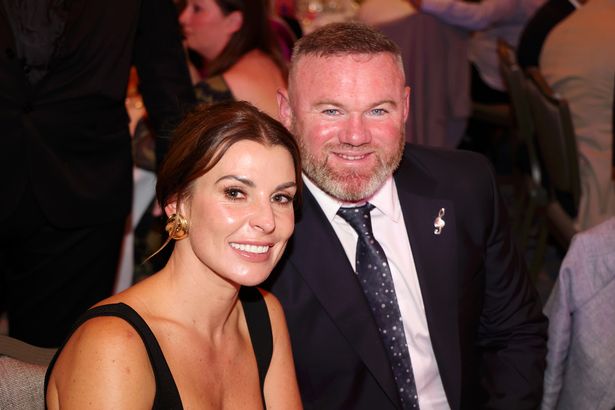
Rooney admitted his 39-year-old wife "helped me control that massively" and "managed me because I needed managing". "I honestly believe, if she weren't there, I'd be dead," he said.
The footballer turned manager has attributed Coleen with making huge interventions during his life. He said: "I've made mistakes in the past which are well documented and whatever but I'm a little bit different at times and she keeps me on that path and she's done it for 20-odd years."